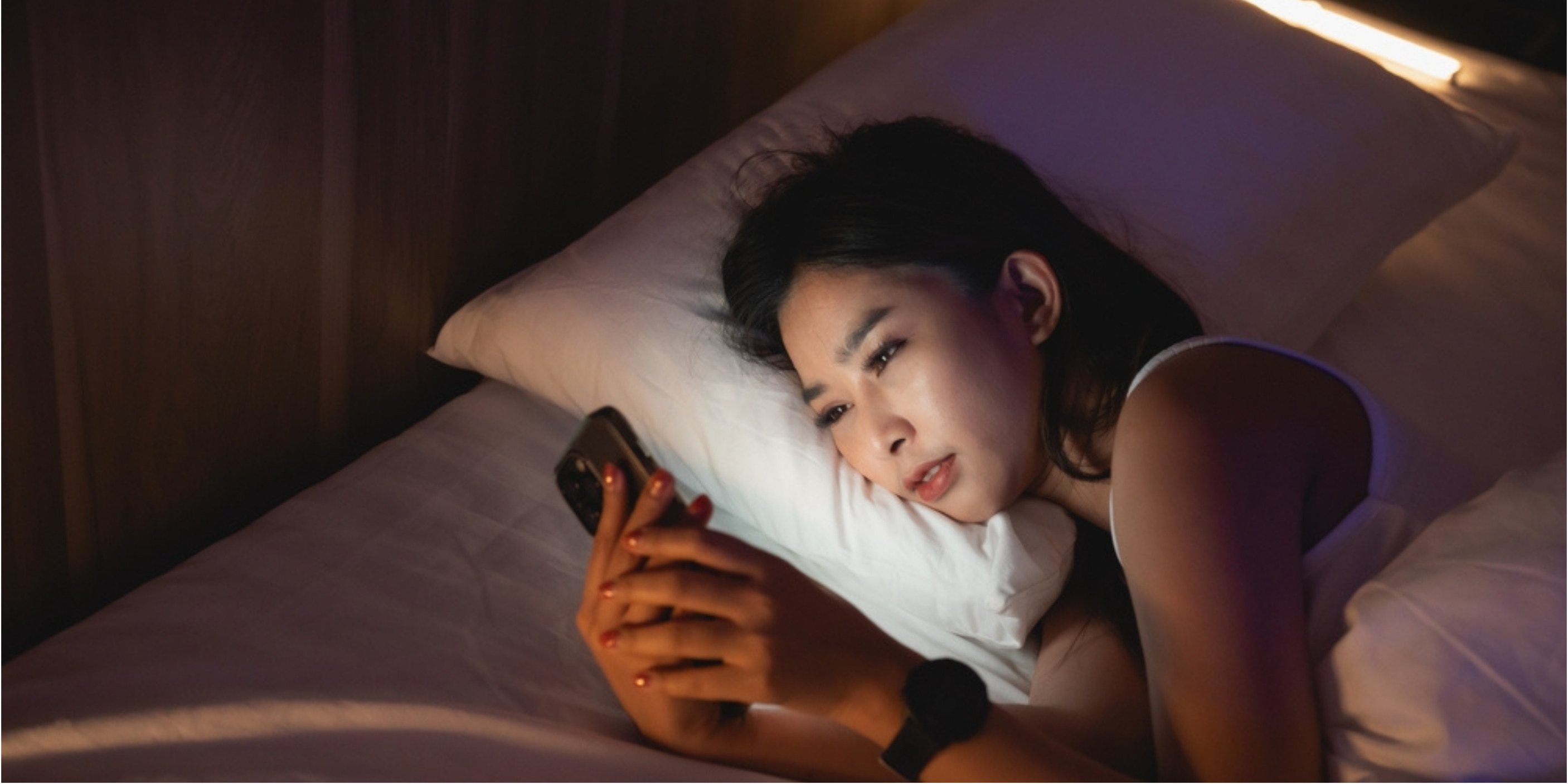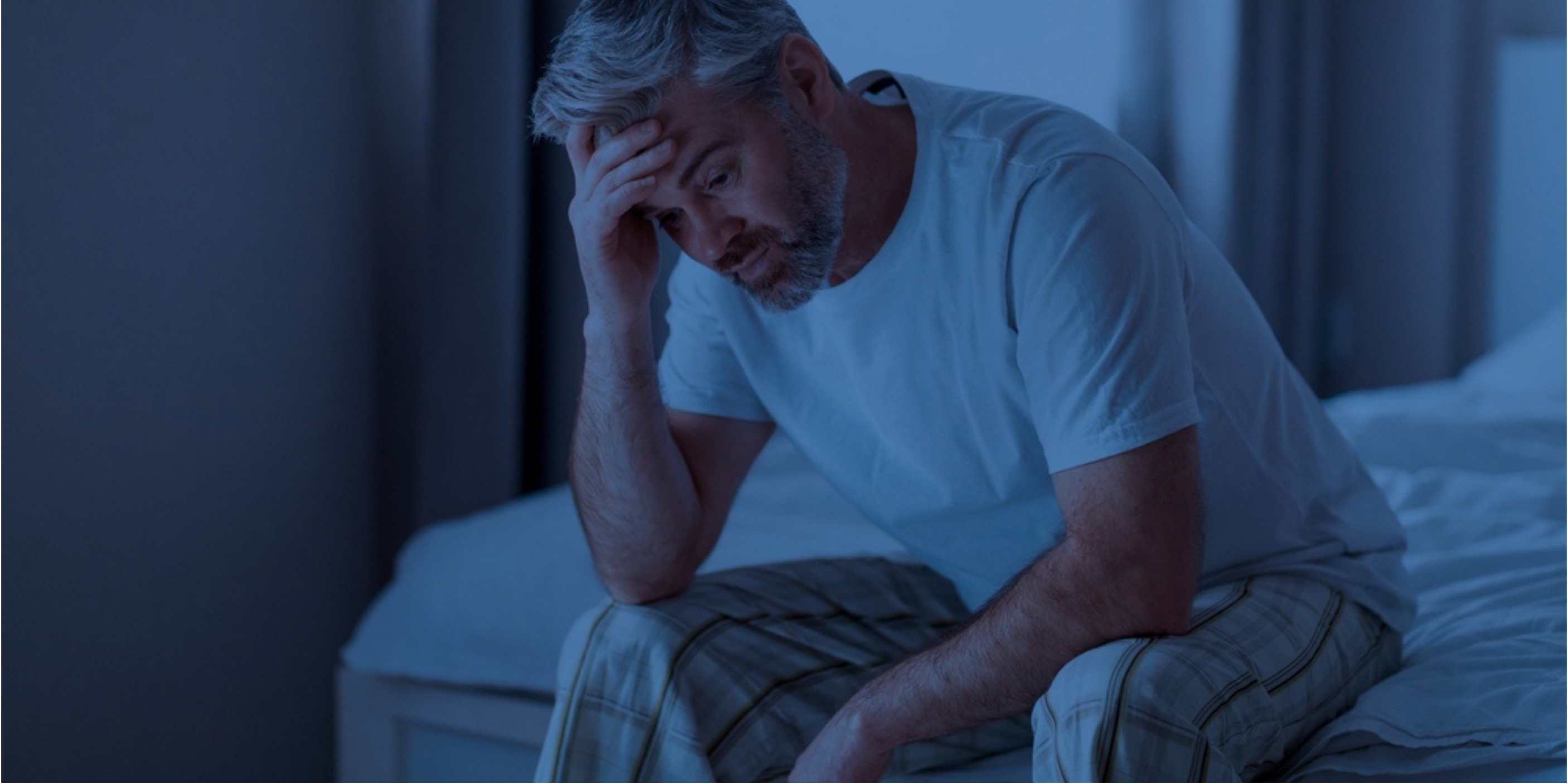
Written by:

Medically Reviewed by:
Last Updated:
February 14th, 2025
Insomnia and addiction
Even one sleepless night can make the next day a struggle, with your emotions on edge and everything a bit of a blur. But when insomnia takes over, it’s not just about the hours of lost sleep– it’s the endless racing thoughts, the frustration and the exhaustion that creep into every corner of your life. For some, addiction becomes part of this battle, as alcohol, drugs and even prescription sleeping pills offer the promise of rest. However, addiction often drags you deeper into sleeplessness and the daily desperation it causes. At Liberty House, we know the toll this cycle can take but we’re here to help you break it –for good!
What is insomnia?
Insomnia is a sleep disorder that makes getting a full night’s rest feel impossible. Insomnia symptoms can mean lying awake for hours, waking up too early or feeling like sleep never really came at all. Over time, this lack of proper rest can mean you:
- Feel constantly drained
- Find it hard to focus or remember things
- Rely on caffeine, stimulants or naps to get through
- Are left feeling irritable or overwhelmed
- Experience a decline in your mental health
- Start struggling at work or in your relationships
- Begin to exhibit poor physical health like weakened immunity
As these insomnia symptoms begin to pile up, they can make even everyday life a huge struggle.
What are the different types of insomnia?
Generally speaking, insomnia comes in two main forms with different root causes and presentations:
1. Primary insomnia
This is when sleep issues happen on their own with no other health conditions involved.
2. Secondary insomnia
Sometimes called comorbid insomnia, this form is tied to something else, like an addiction, illness or a condition like anxiety or depression.
Both of these can show up in different ways:
- Transient insomnia lasts just a few days, often caused by stress or changes in routine. This is very common and most people experience it at some point or other in their lives.
- Acute insomnia stretches on for a few weeks, disrupting your rest and energy.
Chronic insomnia sticks around for a month or more, becoming a regular obstacle in your life.
What causes insomnia?
Insomnia can be caused by all kinds of things. Stress is a big trigger, with worries about work, school or your personal life keeping your mind racing when you should be winding down. Changes in your routine, like travelling or working odd hours, can also throw off your sleep.
For some, insomnia is tied to health problems like chronic pain or conditions such as anxiety or depression. Even the medications you take or habits like drinking too much caffeine or alcohol can play a role. Often, it is a mixture of factors working together, making it important to understand what is behind your sleepless nights to overcome insomnia successfully.
What’s the relationship between insomnia and addiction?
Many people battling addiction also find themselves stuck in a pattern of restless nights. Quite often, there is a dual diagnosis at play, which means the person has an addiction and a mental health condition at the same time.
There are various reasons why insomnia and addiction are so often found together, including:
What addictions are commonly associated with insomnia?
There is a whole range of co-occurring insomnia and addiction combinations which can be incredibly hard to live with. Some of the most common that we see at Liberty House include:
No faq found!
Insomnia and addiction treatment at Liberty House
Addiction and insomnia are deeply connected and this can make rehab treatment even more difficult than it already is. However, Liberty House’s rehab programme can have a significant positive effect on insomnia symptoms while you are working through addiction.
Our programmes include different forms of therapy for insomnia and addiction, which include:
- Group therapy sessions
- Individual therapy (generally not available on the NHS)
- A range of holistic complementary therapies like yoga, meditation, sound and art therapy
- Behavioural therapies including DBT and CBT
- Medical detox for substance addictions
- Family support programme
- Aftercare planning
With this extensive range, you are certain to find approaches which speak to you. Just remember that the more you put into insomnia and addiction treatment, the more you will get out of it!
How to get help for insomnia and addiction
You have spent enough sleepless nights battling insomnia and addiction, but it’s time to get some well-earned rest. At Liberty House, we will help you put addiction to bed and find relief from gnawing insomnia symptoms. Contact us today, and let’s get started!
Frequently Asked Questions
(Click here to see works cited)
- NHS. “Insomnia.” NHS inform, 3 May 2023, https://www.nhsinform.scot/illnesses-and-conditions/mental-health/insomnia/. Accessed 27 December 2024.
- Sleep Foundation. “Insomnia: Symptoms, Causes, and Treatments.” Sleep Foundation, 16 January 2024, https://www.sleepfoundation.org/insomnia. Accessed 27 December 2024.
- UK Rehab. “Dual Diagnosis | Co-Occurring Disorders.” UK Rehab, https://www.uk-rehab.com/mental-health/dual-diagonosis/. Accessed 27 December 2024.
- UK Rehab. “Insomnia and Addiction | Mental Health and Addiction.” UK Rehab, https://www.uk-rehab.com/mental-health/insomnia-and-addiction/. Accessed 27 December 2024.
- Villalobos, Nick. “Insomnia: Causes, Symptoms, Types, and More.” Healthline, 19 January 2022, https://www.healthline.com/health/insomnia. Accessed 27 December 2024.







